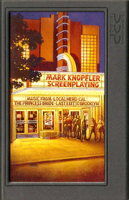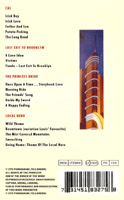Studios, 1989 [6-8]
Studios, 1987 [9-13]
Power Station, New York, USA, 26th July 1982 - 13th August 1982 [14-18]
Utopia / Eden Studios, London, UK, 19th August - 13th September 1982 [14-18]
Power Station, New York, USA, 3rd January 1983 - 24th January 1983 [14-18]
- Irish boy
- Irish love
- Father and son
- Potato picking
- The long road
- A love idea
- Victims
- Finale - Last exit to Brooklyn
- Once upon a time... Storybook love
- Morning ride
- The friend's song
- Guide my sword
- A happy ending
- Wild theme
- Boomtown (variation Louis' favourite)
- The mist covered mountains
- Smooching
- Going home - theme of the local hero


Digital Compact Cassette (DCC) is an obsolete magnetic tape sound recording format introduced by Philips and Matsushita in late 1992. Pitched as a successor to the standard analog cassette, and competitor to MiniDisc (MD) and Digital Audio Tape (DAT), it never became popular with the general public. It shared the same form factor as analog cassettes, and DCC recorders could play back either type of cassette. In February 1996, Jan Timmer who was President of Philips at the time, admitted that sales of DCC were below expectations. According to him, it had become a "niche product for audiophiles". Timmer made clear that it would not be kept in production at any price: "We have to make the balance sometime: how much did it cost, what does it bring in and what are we doing with it now". The DCC was discontinued in October 1996 after Philips admitted it had achieved poor sales and MiniDisc was winning.